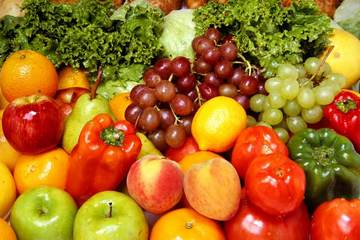Almost Half of World's Food Wasted, Report Claims

In a world where the contrast between poverty and plenty grows sharper every day, a new study finds up to half of the world's food is discarded without being eaten.
The report by the British Institution of Mechanical Engineers claims that between 30 percent and 50 percent of all the grain, fruits, vegetables and meats produced each year is thrown away, reports the Guardian.
This amounts to nearly 2 billion metric tons (2.2 billion tons) of good food worldwide that winds up in the trash, according to the IMechE report, titled "Global Food: Waste Not, Want Not."
"The amount of food wasted and lost around the world is staggering," Tim Fox, head of energy and environment at the IMechE, told the Guardian. "It is also an unnecessary waste of the land, water and energy resources that were used in the production, processing and distribution of this food."
Part of the problem: consumers' expectations of unblemished, cosmetically flawless produce, according to CNN.com. As a result, up to 30 percent of Britain's vegetable crop is never even harvested. And Americans seem to be wasting food like never before. Research detailed in 2009 in the journal PLoS ONE found food waste per person in the United States had shot up 50 percent since 1974.
Even in developing countries, food waste is endemic, but not because consumers reject it. In areas such as sub-Saharan Africa and Southeast Asia, food is disposed of largely due to spoilage caused by problems with shipping and storage infrastructure, according to the IMechE report.
As the world's population races toward the 8 billion mark, the concern is not only the food but the limited resources for producing it: "About 550 billion cubic meters [145 trillion gallons] of water is wasted globally in growing crops that never reach the consumer," the Guardian reports.
Sign up for the Live Science daily newsletter now
Get the world’s most fascinating discoveries delivered straight to your inbox.
Marketers share some of the blame: Strict "use-by" dates often result in perfectly good food getting tossed, and two-for-one specials encourage consumers to buy more food than they realistically can consume.
The IMechE report recommends improving infrastructure in developing countries, and changing retailing policies that encourage waste, as practical ways of reducing food waste.
Follow LiveScience on Twitter @livescience. We're also on Facebook& Google+.










